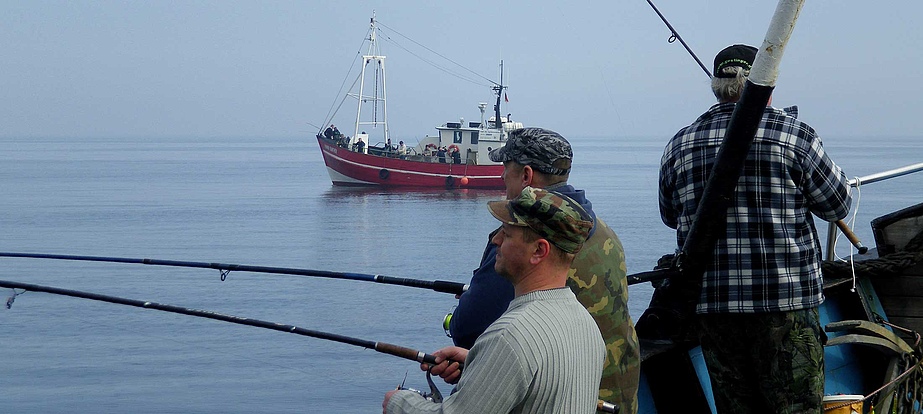Photo: Udo Wagner

Marine ecological-economic systems in the Western Baltic Sea and beyond: Shifting the baseline to a regime of sustainability
Project overview
marEEshift pursues the following overall scientific aims:
1. identify processes that increase or decrease the resilience of marine ecological-economic systems.
2. identify and initiate measures, institutions, and processes that could foster a resilient ecological-economic system of marine resource use in a regime of sustainability. This may require a regime shift from the current state of over-use towards a new resilient regime of sustainability.
To achieve these aims, we will study historical regime shifts in the Western Baltic Sea and beyond. We will explore the combinations of ecological, environmental (incl. climate-related), economic, social, and political drivers that have caused tipping points in the Western Baltic Sea and in cod-fisheries throughout the Northern Atlantic in the past.
In addition to that, we will study the effects of environmental change as well as multi-species interactions and multiple stakeholders on the resilience of the Western Baltic marine ecological-economic system, where commercial and recreational fisheries on cod and herring interact.
Besides analyzing what a regime of sustainability would be in the context of this specific ecological-economic system, we will explore the potential for a shift towards a regime of sustainability for the Western Baltic as a model case.
Granting agency: Federal Ministry of Education and Research (BMBF)
Project duration: 2019-2022



